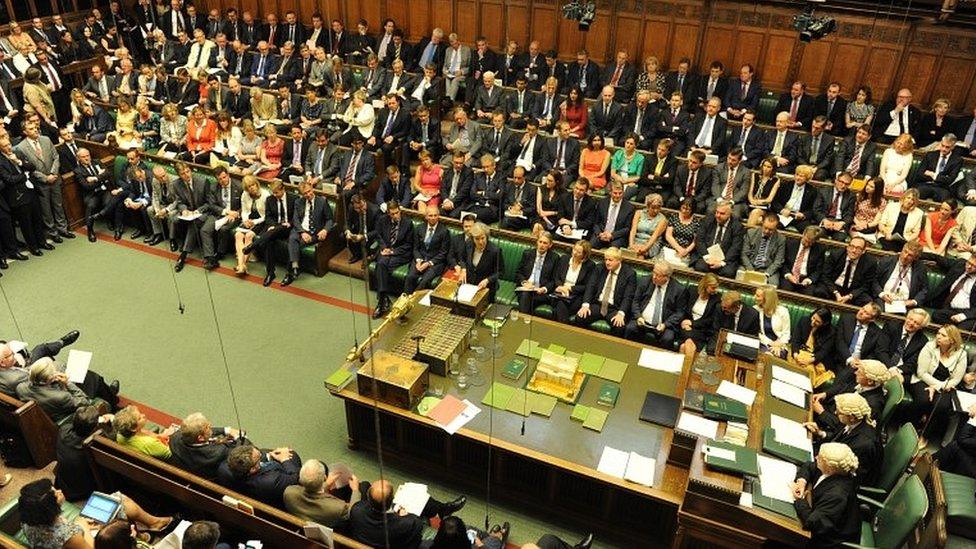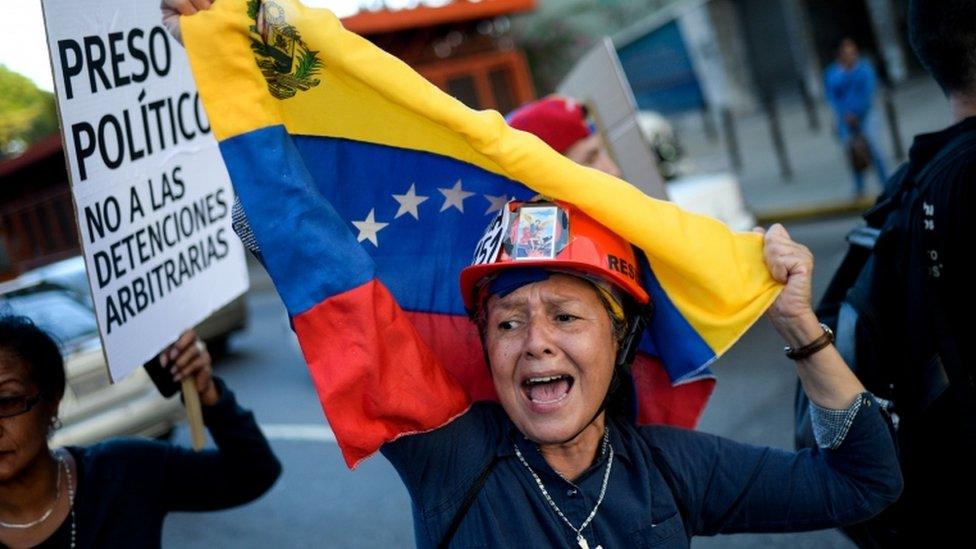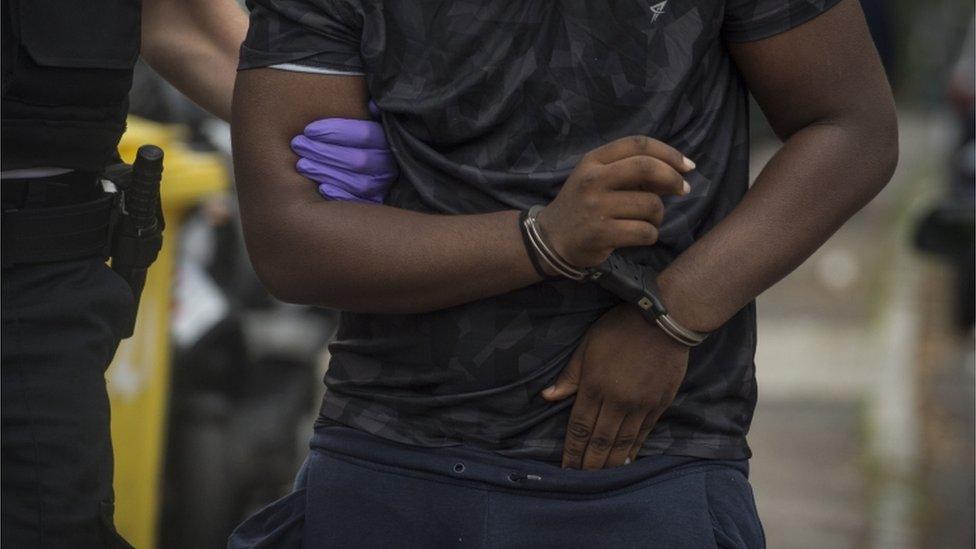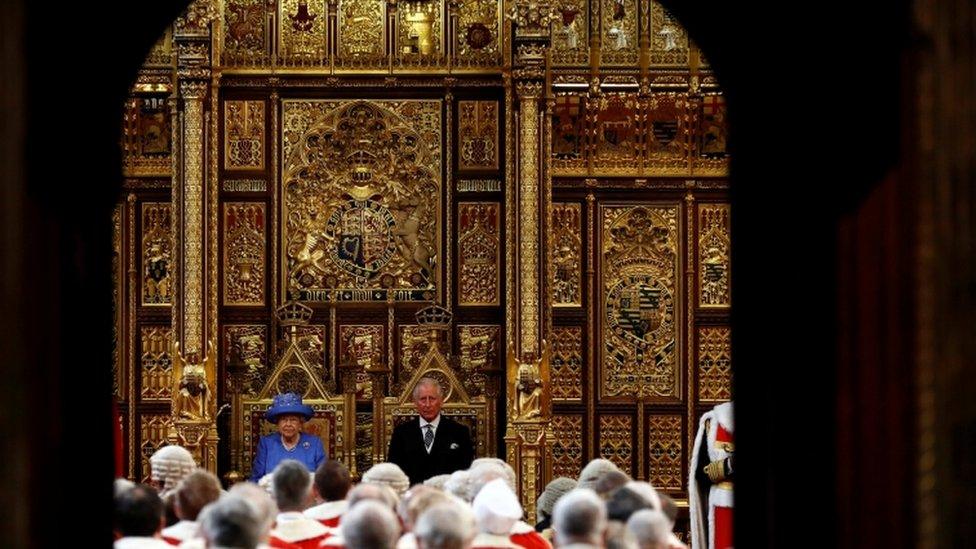Week ahead in Parliament
- Published
- comments

The relatively gentle introduction to parliamentary life enjoyed by the Commons class of 2017 will come to an abrupt end, as they return to Westminster on Tuesday, to begin the long gruelling process of legislating for Brexit (see previous post).
But at least they may have the select committees to provide a little light relief.
On Tuesday and Wednesday, the Conservative internal elections for ordinary places on the select committees will be held (Labour finalised its nominations before the summer holiday), but the failure to establish the Committee of Selection, external, which alone has the power to put a motion to formally nominate the winners, may still delay the moment when the committees are able to start work.
The Committee of Selection is normally a cog in the parliamentary machine, nominating MPs not only to the select committees, but also to Public Bill Committees, external doing the detailed scrutiny of legislation and the delegated legislation committees, which scrutinise secondary legislation. And the blockage seems to be that the government wants a majority on those committees, even though it doesn't have a majority in the Commons itself (see my earlier blog).
But there may now be a deal in prospect, at least on the select committees - the idea being mooted is that the Conservatives will be allocated around 150 select committee places, but will not have to distribute them in a strict quota to each select committee.
So they could guarantee themselves a majority on the most important - Treasury, Defence, maybe Brexit and Home Affairs - while surrendering control of others - Health and Education, perhaps - and sending modest contingents to Scottish and Welsh Affairs.
A deal along these lines would at least allow the parties to get the select committees going, before their absence became an embarrassment.
The Commons would be invited to vote on a motion that "notwithstanding" the normal requirement for committee members to be nominated by the Committee of Selection, the following were nominated....
But it would still leave an unsustainable situation where there were no Public Bill Committees or SI committees - which are normally nominated directly by the Committee of Selection - without a motion being put to the whole House.
For example, this week the completely humdrum and uncontroversial Telecommunications Infrastructure (Relief from Non-Domestic Rates) Bill, external is being considered in committee of the whole House. Once there is more legislation going through, the government won't be able to take this option without Parliament grinding to a halt... and that's before the great Brexit tidal wave of Statutory Instruments, each requiring a committee to approve them, hits.
Anyway, here's my rundown of the Parliamentary week ahead.
Tuesday
The Commons reconvenes at 2.30 pm, with the Middle Level Bill, external, a private bill to amend and update the powers of the Middle Level Commissioners to regulate navigation on the Middle Level of the Fens in Peterborough, Cambridgeshire and Norfolk up for formal approval. This measure was derailed by the election, and this is a motion to revive it - but the band of guerrilla MPs who object to undebated legislation may seek to force a debate, in which case, it might simply be pulled from the agenda.
Next comes an hour of Justice Questions, which will be followed by any number of post-holiday ministerial statements and urgent questions.
And for a bit of light relief, MPs who have private members' bills not awarded debating time in the annual ballot will present their proposed legislation. This could take quite some time, because the two veteran exponents of this particular parliamentary tactic, the Conservatives Chris Chope and Peter Bone have rather gone to town - Mr Chope will be presenting 47 bills on subjects ranging from privatising the BBC to bat habitats; and Mr Bone 26 including one (rather cheekily) to require the publication of details of meetings between the government and Opposition whips, with one each for Fiona Bruce and Labour's Frank Field, on genocide determination and meals for children during school holidays, respectively.
The day's legislation is on the detail of the Telecommunications Infrastructure (Relief from Non-Domestic Rates) Bill, external - which scraps business rates on new ultrafast broadband lines. This is not a bill that would normally be considered by a committee of the whole House, but because of the delay in setting up the Committee of Selection, this is the only way it can be dealt with. Unless that committee is set up fairly soon, there could be a nasty legislative logjam ahead.

Venezuelan opposition activists carry out a demonstration in Caracas
Over in Westminster Hall, the Labour MP Graham Jones, who chairs the all-party parliamentary group on Venezuela, has a debate (9.30am-11am) on the political situation in that country. Debates of this kind are usually rather humdrum affairs, but this time the Labour leader's long history of support for the socialist government of Venezuela might make for a sparky occasion. The constitutional crisis in Venezuela has led to considerable violence and Mr Jones has called on Jeremy Corbyn to publicly condemn the actions of a government which he has often held up as an example of successful socialist rule.
At 11.30am, the senior Conservative Neil Parish has a debate on new housing design, focusing on how the government could deliver its manifesto commitment to high-quality high-density housing, like mews, terraces and mansion blocks.
He wants to see a new Housing Ombudsman, with powers to provide redress when there are problems with newly built housing, and he wants to give local people more say over the design of new homes, on the argument that one of the key objections to new housing developments is poor bland design, which often fails to meet local housing need.
And at 1.30pm the Labour MP Chuka Umunna continues his Commons campaign against the blacklisting by employers which, he says, denies people employment because they have raised health and safety issues, joined a political party, or been active trade unionists.
In the Lords (2.30pm) there is the second reading for the Air Travel Organisers' Licensing Bill, external - which updates the protection for consumers when holiday providers go bust, to take account of new digital business models in the travel market which often fall outside the scope of the existing ATOL scheme.
After that, peers debate the report from their EU Select Committee Brexit: UK-Irish relations, external which warns of the serious economic implications of Brexit for Ireland, North and South and argues that the unique nature of UK-Irish relations requires a "unique solution" in the Brexit negotiations.
A strong list of speakers is accumulating, including the former Northern Ireland First Minister, Lord Trimble and former Northern Ireland secretaries Tom King, Paul Murphy and Peter Hain.
Wednesday
In the Commons (from 11.30am), MPs kick off with Welsh Questions, which will be followed, at noon, by Prime Minister's Questions. And after that there could well be a second helping of post-holiday ministerial statements and urgent questions.
The main business of the day will be a series of Ways and Means Resolutions relating to the Finance Bill, external - under this rather antiseptic description there are 48 tweaks to the tax system covering such subjects as Venture Capital Trusts and Data Gathering Powers.
Interestingly, I'm told Labour are running a three-line whip, which suggests they might not wave them all through.

The adjournment debate will be looking at knife crime
The day will end with an adjournment debate on knife crime led by the new Labour MP for Croydon Central, Sarah Jones, who has set up a new All Party Parliamentary Group on knife crime, which aims to create new measures and policy recommendations to combat a resurgence in knife crime, in the capital and across the country.
The group's focus will not solely be on judicial or policing measures, but the causes, with particular focus on prevention and early intervention.
In Westminster Hall, there are debates on the proposed ban on letting agent fees to tenants (9.30am-11am); solar panels on residential properties (11am-11.30am); the International day of democracy (2.30pm-4pm) and consular support for British citizens (4pm-4.30 pm).
Finally (4.30pm- 5.30pm) what will probably become a familiar subspecies of debate in the coming years, as the Conservative Antoinette Sandbach raises concerns about the proposed route of phase 2b of the high speed rail line, HS2, external, through her Eddisbury constituency. These include the fact that a number of salt mines lie along the route and the effects on canals - and, of course, the impact on residents.
In the Lords (3pm), peers will continue their detailed scrutiny of the Financial Guidance and Claims Bill, external which creates a single financial guidance body by merging three existing government-sponsored financial and pension guidance services, and provide for funding of debt advice in Scotland, Wales and Northern Ireland.
The one contested Lords vote of the week looks likely to be on the Labour peer Lord Hunt of Kings Heath's regret motion on the National Health Service (Mandate Requirement) Regulations 2017 - he says these allow the government to abandon its 18 week waiting time target for NHS operations in the 2017-18 financial year. He believes this will have a negative impact on patients and is probably illegal.
Thursday
It's Brexit day in the Commons (from 9.30 am) with Brexit Secretary David Davis starring at Exiting the European Union Questions, before opening the two day second reading debate on the European Union (Withdrawal) Bill, external (the measure previously known as the Great Repeal Bill).
Sandwiched between them will be Commons Business Questions - where the Leader of the House, Andrea Leadsom, will set out the agenda for the coming week.
In Westminster Hall, there are debates on the transparency of the BBC (1.30pm) and 16 to 19 education funding (3pm).
In the Lords (11am), peers debate overcrowding in UK prisons and improving digital understanding.
Friday
MPs are not sitting, but their lordships are stealing a march with a series of second reading debates (from 10am) on their new crop of private members' bills, starting with the House of Lords (Hereditary Peers) (Abolition of By-Elections) Bill, external, from Labour's Lord Grocott. This does what it says on the tin, ending the system of by-elections which maintains a contingent of 92 hereditary peers in the Upper House, the compromise which smoothed the way for the removal of most hereditary peers under the Blair government.

The process by which hereditary peers are selected to sit in the Lords will come under scrutiny again this week
There have been a couple of attempts to achieve this before, but they have always been blocked, and, ominously, the Conservative Lord Caithness, who defeated David Steel's earlier attempt to end the hereditary by-elections, is on the speakers list for this second reading debate.
Next is the Lib Dem Lord Dholakia's Age of Criminal Responsibility Bill, external - which would raise the age limit from 10 years to 12. He argues that the current age of 10 is the lowest in Europe, and that in other areas of English law, children are not considered fully competent to make decisions until much later in life- whether it involves buying a pet, smoking, drinking or going into paid employment.
The Speakers List includes his colleague Lord McNally, a former justice minister and Lord Ramsbotham, a former Chief Inspector of Prisons.
Finally, the Conservative Lord McColl of Dulwich will propose his Modern Slavery (Victim Support) Bill, external.
This would give victims of modern slavery, who often face deportation or criminal charges, a "reflection and recovery period" of 45 days, and a further period of 12 months following confirmation of their status as a victim of modern slavery.
Peers listed to speak include Baroness Newlove, the Victims' Commissioner, who advises ministers on aspects of the criminal justice system that affect victims and witnesses.